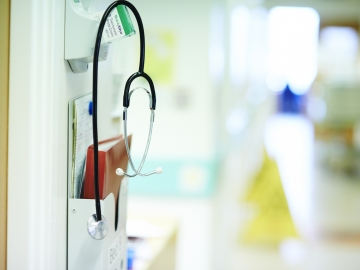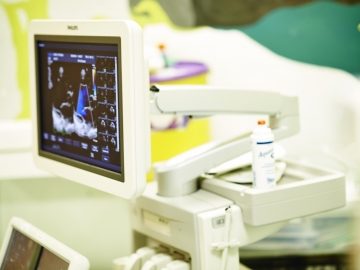Adult
- About
- Meet The Team
- Conditions
- Patient Feedback
- Making the most of your clinic appointment
- Your Appointment in Outpatients
- Easy Read Guide for Out Patients
- Cardiac Catheter
- Transoesophageal Echocardiogram
- MRI
- Surgery & "Top Tips" for coming into hospital
- Lifestyle Advice
- Exercise
- Heart Failure
- End of Life and Palliative Care
- Looking after your oral health
- Dentists Information Section: Dental care in adults at risk of Infective Endocarditis
- Yorkshire Regional Genetic Service
- Support
- Video Diaries
- Second Opinion
- Monitoring Results at Leeds Infirmary
- Professionals
Transoesophageal Echocardiogram
-
The doctors caring for you have decided that more detailed pictures of your heart are needed, to help them make decisions about your treatment, and have asked for a transoesophageal echocardiogram (TOE). This involves a small scope being passed down your oesophagus (gullet) as described below.
This procedure is carried out as a day case. You will have an appointment letter that will advise you to have nothing to eat for 6 hours before the test. You should not drive yourself to the hospital and a responsible adult should accompany you to take you home following the test.

-

You will be given a time to come to Ward 14 where you will be seen by the doctor who will perform the test. They will explain the test and ask you to sign a form agreeing to it. You will be asked to change into a hospital gown.
At the time of your test you will be taken to a quiet room where the test is carried out. A small needle will be put into the back of your hand and some local anaesthetic will be sprayed onto the back of your throat to numb it.
Following this you will be asked to lie on your side and a small guard will be placed between your teeth to stop you biting the scope. You will be given oxygen through tubing below your nose. A sedative will be given through the needle in your hand to make you sleepy, but you will remain awake. The doctor will ask you to swallow a scope (about the width of your index finger). People feel the scope passing, but once in the gullet it does not cause any distress. Pictures of the heart are taken using an ultrasound probe at the tip of the scope once it is in place. In most cases patients do not remember anything about the test due to the sedative used.
-
During the test your blood pressure and the amount of oxygen in your blood is recorded by a nurse and the test is stopped if there are any concerns.
The test lasts about 15 minutes, after which the doctor will give you another injection through the needle in your hand to reverse the sedative. You will be taken back to the ward and the doctor will explain what they have found. After about one to two hours you can be taken home by the responsible adult who has come with you. You will not be able to eat or drink until the numb feeling in your throat has worn off (usually about one hour after the spray). You should not drive until the following day.
The test itself is very safe and will not be carried out if there are any concerns. About one person in a hundred will not be able to manage to have the test performed due to the doctor being unable to pass the scope. The risk of a serious problem, such as damage to the gullet, is only seen in one out of every ten thousand tests.
This is a teaching hospital so there will occasionally be medical or nursing students watching the test. You will be asked if this is acceptable to you. You can however request that the only people present are those necessary to perform the test.
